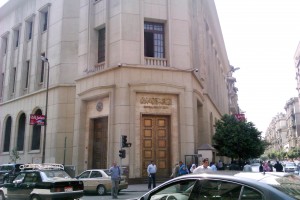
(Abdelazim Saafan/DNE Photo)
Saudi Arabia has transferred $2bn to the Central Bank of Egypt in the form of a five year interest-free deposit. This comes as a part of the $5bn aid package that Saudi pledged to Egypt after the ouster of president Mohamed Morsi.
In a sign of support to Egypt’s economy, which continues to reel from more than two years of unrest, Gulf states have pledged $12bn aid, $3bn from the United Arab Emirates, $4bn from Kuwait and $5bn from Saudi, in form of cash grants, deposits and petroleum products.
Saudi’s aid breaks down into $1bn as a grant and $2bn in the form of fuel petroleum products. Meanwhile, the UAE’s aid is a $1bn grant and $2bn interest free deposit with the central bank. Kuwait’s combined package includes a $2bn deposit, a $1 grant and $1bn oil products.
Hisham Ramez, governor of the central bank, previously announced that the bank had received the $3bn aid from the UAE on Thursday 18 July.
Kuwait has also delivered $200m worth of crude oil and diesel as part of a $4bn aid package.
In April, Egypt’s foreign reserves surged for the first time in a year, after dropping to $13.4bn.
An economist at investment bank EFG-Hermes, Mohamed Abu Basha, said the Saudi deposit will push foreign reserves up, which reached $14.9bn according to the central bank’s last reports.
Egypt’s international reserves have dwindled more than 50% since the 2011 revolt ending the reign of Hosni Mubarak, as tourism and foreign investments were massively impacted by intermittent violence and frequent protests. Net reserves were more than $34bn on the eve of the 2011 protests




